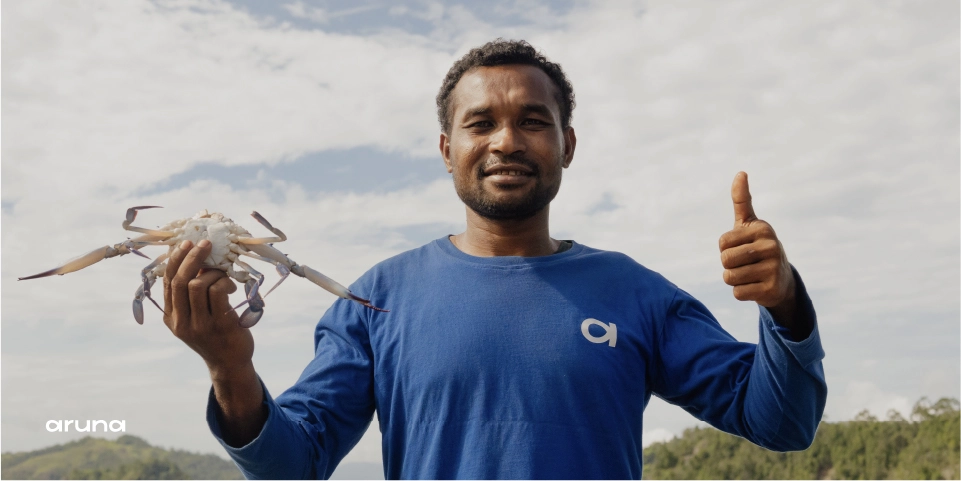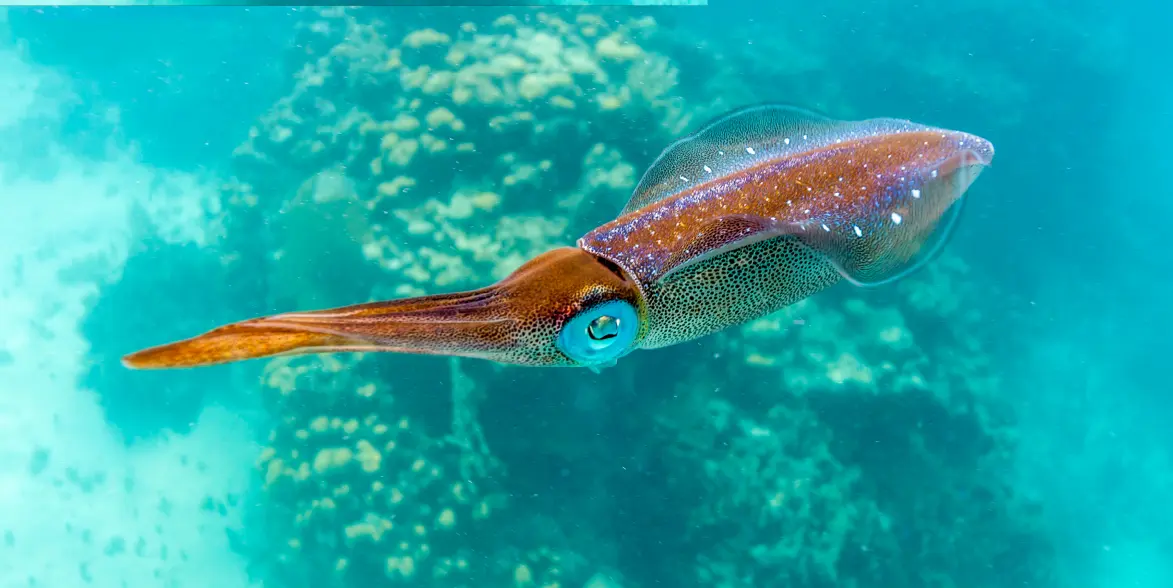In carrying out one of KKP’s important tasks to build and integrate the community-based marine and fisheries business processes through the optimization of marine and fisheries resources utilization, one of KKP’s routine activities is a dialogue event called “Bincang Bahari” (Marine Chat).
In the recent “Bincang Bahari” event held by KKP at the end of February with the theme “Mapping the Marine and Fisheries Sector Amid the Global Recession Issue,” the government involved the presence of domestic marine and fisheries industry players. Aruna, as one of the fisheries companies positioning itself as an integrated fisheries commerce and supply chain aggregator in Indonesia, also participated in this “Bincang Bahari” event. Aruna was represented by Utari Octavianty, Co-Founder, and Chief Sustainability Officer of Aruna.
Aruna: The Answer to Fisheries Market Industry Challenges is Downstreaming and Optimization

The marine and fisheries industry in Indonesia is recognized by the world to have tremendous potential. It depends on how our country can utilize this maritime potential as an answer to challenges and market competition amid the global crisis. As per the theme of this “Bincang Bahari,” mapping is essential to obtain real data on the conditions of the domestic and global fisheries market industry. The government’s strategy to use downstreaming as a way to address industry challenges is seen by Aruna as a proper step.
Utari stated, “Downstreaming is a positive thing that will undoubtedly add value to Indonesia’s fisheries industry. Additionally, businesses must be interconnected to support the realization of downstreaming. At Aruna, we fully support this effort, including optimizing the fishermen’s catch results and presenting diversified Aruna fishermen’s catch commodities according to market needs.”
“Ir. Ishartini, Director-General of Strengthening the Competitiveness of Marine and Fisheries Products (Ditjen PDSPKP), expressed, “Good planning strategies can minimize the impact of uncertain conditions. Supported by Indonesia’s current government focus, especially the downstreaming strategy, it is expected that the fisheries and marine industries can continue to grow, considering that the fisheries sector is one of the government’s eight focus sectors.”
Industry Players Must Be Astute in Creating Potential in the Domestic Market
Aruna believes that amid the global recession’s impact on the fisheries market industry, businesses operating in the fisheries and marine sectors must have the ability to discern which products are suitable for export and which are not. The astuteness to create potential in the domestic market must be practiced by business players, not only to drive the economy but also to contribute to increasing the consumption of fish by the Indonesian people, thereby improving their nutritional health.
Aruna’s strategy of always utilizing appropriate technology in implementing sustainable fisheries and improving the supply chain aligns with the government’s steps. In response to this, Ishartini revealed, “We are also striving for downstreaming, which is supported by adequate logistics infrastructure, especially for the end-to-end supply chain, particularly for fishery products.”
Aruna Empowers Small-Scale Fishermen
As Utari stated earlier, designing downstreaming strategies that can connect all players in the fisheries industry will be one of the solutions to ensure that the supply chain of fishery products can be optimally utilized. This involves everyone from fishermen, distributors, seafood suppliers to retail and wholesale consumers. Through the collaborative ecosystem of fisheries players in Aruna Hub, Aruna will continuously assist the government’s strategy to advance the industry and the communities involved in the marine and fisheries world.
“We remain committed to empowering more small-scale fishermen. This is done through empowering fishermen and coastal communities by conducting regular educational programs on marine preservation, financial literacy, policy compliance, and many others,” Utari emphasized.











Leave a reply
No comments found.